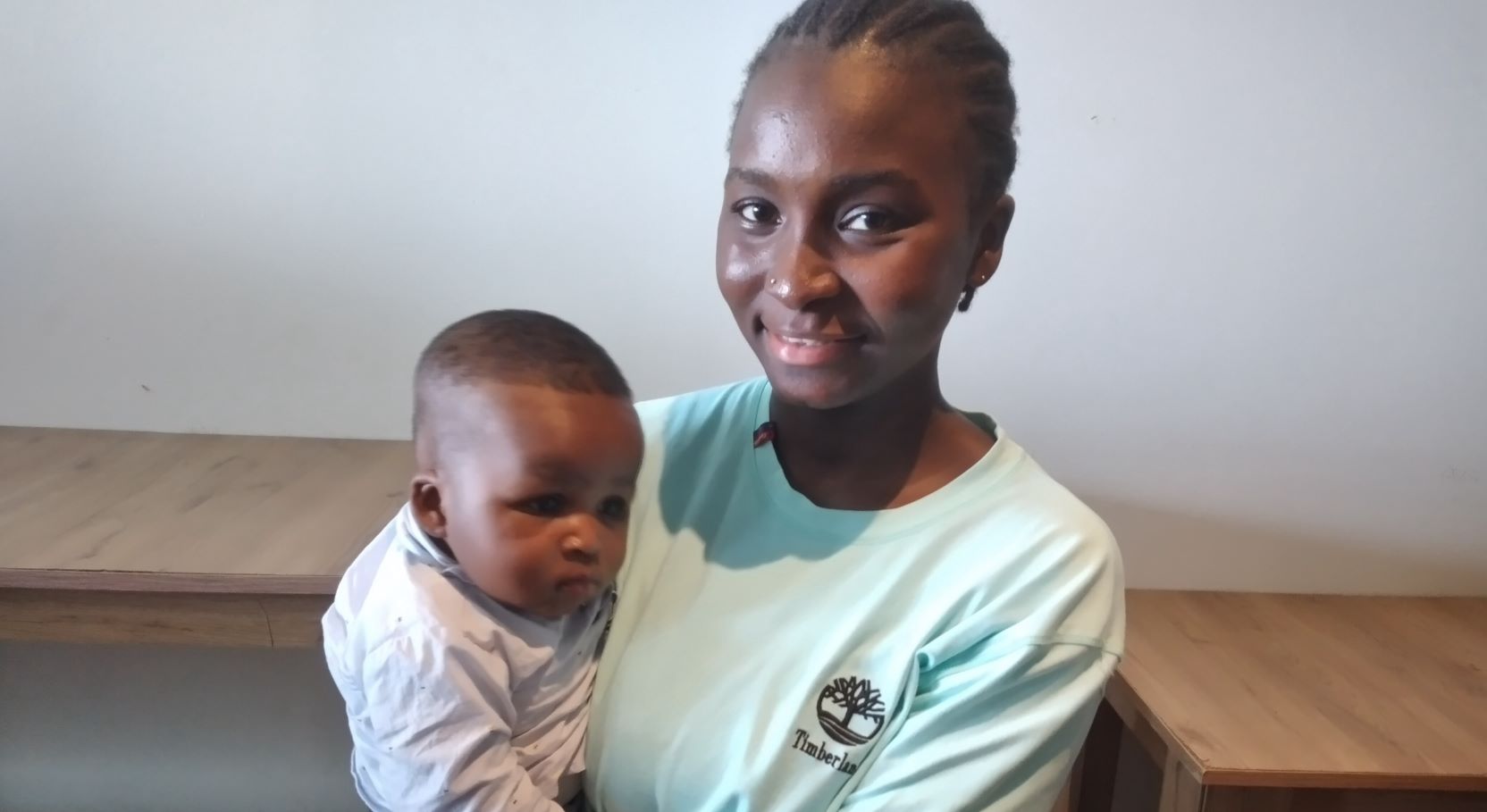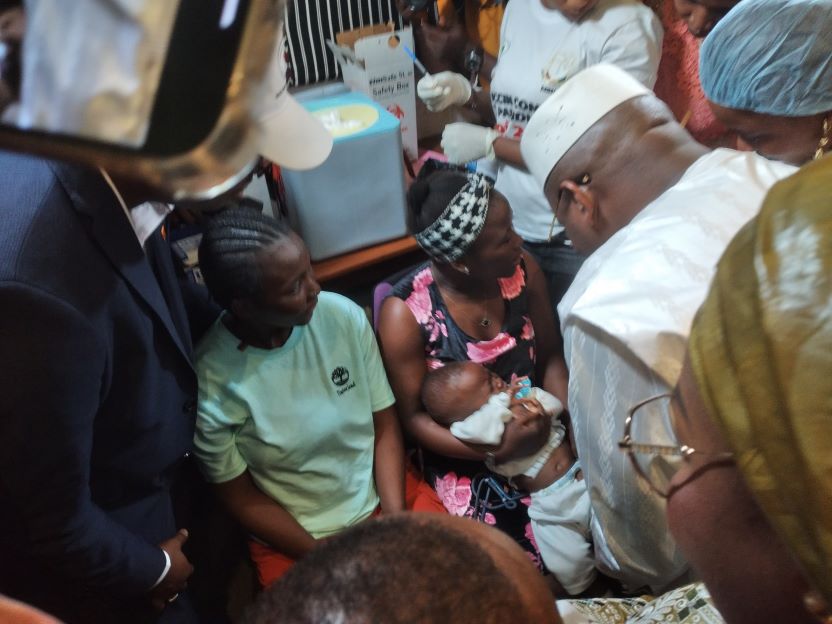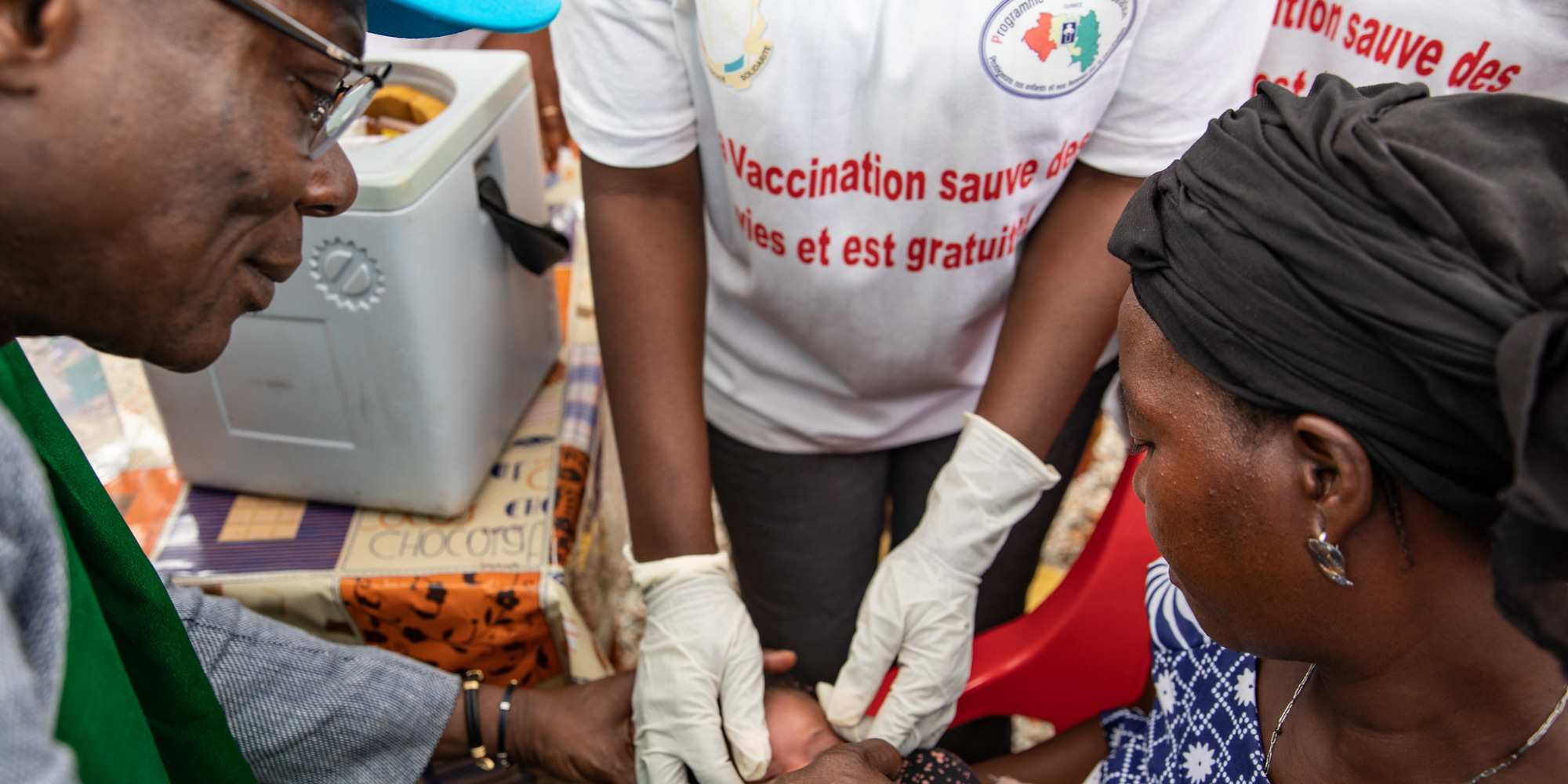“An act of health justice”: Guinea's children receive the malaria vaccine
It’s still the leading cause of death among children under five in Guinea. As the country’s malaria vaccination programme gets going, leaders hope the parasitic infection will soon be in retreat.
- 25 September 2025
- 6 min read
- by Alpha Abdoullaye Diallo

At midday in Conakry, as a light rain falls, two women wait for the nurse, holding their infants. To their side, a cooler holds vials of the new vaccine. This is the national launch of Guinea’s malaria vaccination programme, and soon, Prime Minister Amadou Oury Bah enters the room, accompanied by National Transition Council president Dansa Kourouma and Minister for the Promotion of Women, Children and Vulnerable People Charlotte Daffé.
To warm applause, the Prime Minister and Kourouma each administer one of the very first doses.

The head of government called the vaccine’s arrival an “act of health justice” and underlined the particular vulnerability of children.
“By preparing their bodies early through vaccination, we strengthen their immune systems. It’s a race against disease. We prepare for war so we don’t have to fight it,” he said.
For M’Mabinty, the mother of one of the babies vaccinated during the launch ceremony, the moment brought relief. “Malaria makes us suffer so much. In my family, we are always sick, especially during this rainy season,” she said. She urges other mothers to take advantage of the free vaccine for their children, stressing that it is now the surest way to protect them from a disease that all too often ends in tragedy.
At Conakry’s regional hospital, paediatrician Dr Doumbouya sees the toll of malaria every day.
“Very often, children arrive already in a state of great weakness. Families may have tried to treat them at home, sometimes for several days, before finally coming in. By then, the children are extremely frail, which makes our work much harder,” he says. The shortage of beds only adds to the challenge: “We simply don’t have enough space for all the patients, and that makes care even more complicated.”
4.4 million cases a year – malaria is still the leading killer of children
Health Minister Oumar Diouhé Bah hailed the vaccine’s arrival as “a historic new step in the fight against malaria” and a way to “ensure every child can start life protected from preventable diseases”.
The roll-out of the vaccine comes not a moment too soon. In 2023 alone, Guinea recorded nearly 4.43 million cases of malaria, according to WHO’s 2024 World Malaria Report. The disease accounts for more than a third of all consultations and hospitalisations in public facilities, and it is still the leading cause of death among children under five. National parasite prevalence in this age group is 17%, climbing above 30% in parts of Forested Guinea.
“Faced with these realities, action was urgent!” stressed UNICEF’s representative in Guinea, Maddalena Bertolotti.
The pilot phase is starting in four health districts – Mamou, Gaoual, Kankan and Yomou – all in areas of intense malaria transmission.
Around 60,000 children between 5 and 11 months old will become eligible each year. To achieve the best protection, the vaccine requires four doses. Nationwide roll-out to the remaining 38 districts will come gradually.
“We’re moving step by step, learning what works well and what still needs to be improved,” says Dr Daman Keïta, the new head of the Expanded Programme on Immunization, noting that current supplies are not yet sufficient to cover the whole country.
Still, doctors are optimistic. “With this vaccine, we expect a significant reduction in cases of Plasmodium falciparum malaria, which takes such a heavy toll on children and mothers,” says Dr Alpha Oumar Diallo, a general practitioner. “But it won’t replace the other preventive measures already in place.”
Have you read?
He urges families to stay vigilant: keep using insecticide-treated bed-nets, follow hygiene measures, and stay engaged at the community level.
Raising awareness and building trust
To avoid confusion, Dr Daman Keïta is careful to stress: “This is not a one-off campaign. Today’s ceremony simply marks the official approval to use the malaria vaccine for children between 5 and 23 months.”
With trained health workers, a reliable cold chain and strong community engagement, the goal is clear: every eligible child should receive all four doses, on schedule.
In Kankan, one of the four pilot districts, relief is already visible. “Malaria is still the leading cause of illness and death among children under five. Having a vaccine to protect them is a huge step forward,” says Dr Fodé Condé, the district health director.
Just a few days after the launch, more than 300 children had already been vaccinated. “That shows how ready the community is. An information and awareness campaign really laid the groundwork,” he adds – though he cautions that stock-outs must be avoided.
In Mamou, another pilot district, the vaccine is welcomed with the same optimism. “This vaccine will greatly improve the health of our people, especially children and pregnant women,” says local councillor Sidi Diallo. He praises the efforts of authorities and partners, but highlights the need for grassroots communication. “We will explain to families why this vaccine matters. These are Guineans, parents themselves, who are leading this programme – they would never agree to give our children anything unsafe,” he insists, pushing back against lingering rumours.
He believes community media will be crucial. “Rural radio and local stations can really help convince families. They need to broadcast clear, consistent messages so that everyone understands the benefits of this vaccine,” he says.






